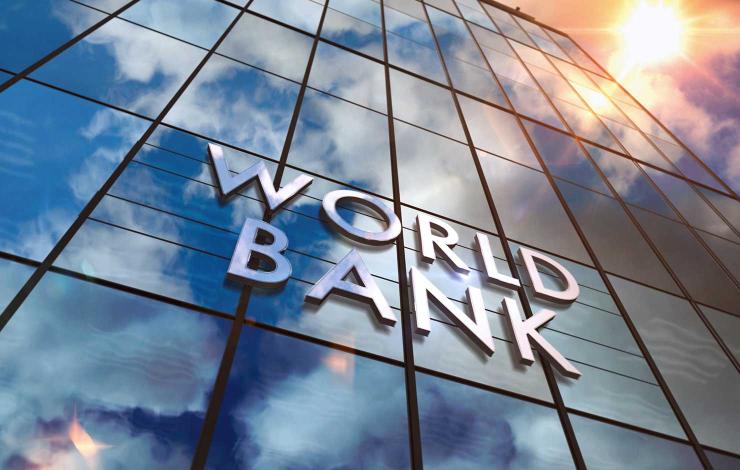

The supremacy of the constitution and the rule of law are enshrined in section one of the founding provisions of the constitution. In effect, this means ours is a system in which all laws and conduct have to be consistent with our founding norms and values on pain of being struck down by the courts as invalid.
While the constitution itself is contained in a single document drafted by the founders of our new constitutional order, the rule of law is less easily identified but no less important for the success of the democratic project the nation embarked upon in 1994.
Defining the rule of law has proved to be a policy-laden and extremely tricky affair since time immemorial.
The most comprehensive and internationally acceptable definition is that of the World Justice Project, which is dedicated to advancing the rule of law around the world.
As used by the World Justice Project, the rule of law refers to a rules-based system in which the following four universal principles are upheld:
The World Justice Project recently released its latest rule of law index for 97 countries in which measurement of the various dimensions of the rule of law has been taken. South Africa is one of these countries, and has been since the inception of the project.
It is of interest to those who live in and trade with South Africa to take cognisance of the progress being made with embedding the rule of law in the governance of the country. Emerging trends can be observed and slippage countered by examining and comparing the scores achieved from time to time.
For present purposes, it is enough to compare the factors measured last year with those measured in 2011 in respect of South Africa (a perfect score is 1.00 and an abysmal one 0.00): limited government powers, .62 (2011: .62); absence of corruption, .50 (.61); order and security, .56 (.55); fundamental rights, .64 (.65); open government, .61 (.56); regulatory enforcement, .54 (.57); access to civil justice, .55 (.60); and access to criminal justice, .49 (.56).
These scores place South Africa in the mid-range of global scores and towards the upper end of regional rankings.
The passage of the Protection of State Information Bill through Parliament later this year is likely to have an adverse effect on the improved open governance score.
The SAPS Amendment Act of 2012, which minimally tweaked the Hawks, and rising levels of corruption account for the lower score on the "absence of corruption" factor.
The cost of civil litigation is likely to have influenced the poorer score for access to civil justice, while court delays and underfunding of the criminal justice administration, with awaiting-trial prisoners languishing in jail for extended periods, explain the only score below .50 — for access to criminal justice.
As corruption has the potential to completely derail the democratic project in South Africa, it is necessary to pay particular regard to the marked slippage in the score to .50 from .61 in only one year.
The National Planning Commission has a plan for dealing with corruption that does not take proper cognisance of the decision of the majority of the Constitutional Court in the Glenister case about the suitability of the Hawks as our national anticorruption entity. The passage of the SAPS Amendment Act was a minimalistic response to the findings of the court; some findings were apparently ignored and others misconstrued in the efforts to do as little as possible to satisfy the court that the changes would produce an adequately independent and effective anticorruption entity that is compliant with the international obligations South Africa has undertaken in treaties at international, continental and regional levels.
Not surprisingly, neither Hugh Glenister nor the Helen Suzman Foundation, which was a friend of the court in the case fought by Glenister, is satisfied that the judgment has been complied with by the authorities.
They are both now attacking the constitutionality of the amended legislation in the Western Cape High Court, having been refused direct access to the Constitutional Court for the further ventilation of the important and urgent issues that are raised by their attack.
It is instructive to look further afield for inspiration in the fight against corruption. A recently released compendium prepared on a nonpartisan basis for the benefit of US policy makers lists seven proposals for fighting corruption in trade with Africa.
All of these proposals are aimed at ending the excuse that "you can’t do business in Africa if you are not prepared to pay a bribe". Of particular relevance to South Africa is the reliance upon the OECD convention to which South Africa is a party. The guidelines developed by the experts in the OECD, who have made it their life’s work to counter corruption, were embraced by the Constitutional Court in its judgment in the Glenister case. Specialisation, training, adequate independence from political interference or influence, proper and guaranteed resourcing and security of tenure are the hallmarks of an effective anticorruption entity. These are the qualities the court singled out in its judgment and they ought to be taken on board in the legislation if SA is to reverse the slippage on its rule of law index’s "absence of corruption" score.
The Hawks, both in their pre-2012 and post-2012 incarnations, simply do not cut it as an effective anticorruption entity. The political will to address this must be generated if further slippage is to be avoided.
The reward for tackling corruption effectively is to be found in an increase in foreign direct investment that creates jobs, promotes progress and ensures prosperity for all. Engaged citizens, the mandarins of the National Planning Commission and the officials in the government tasked with the issues around tackling corruption should have regard for the compendium referred to above.

